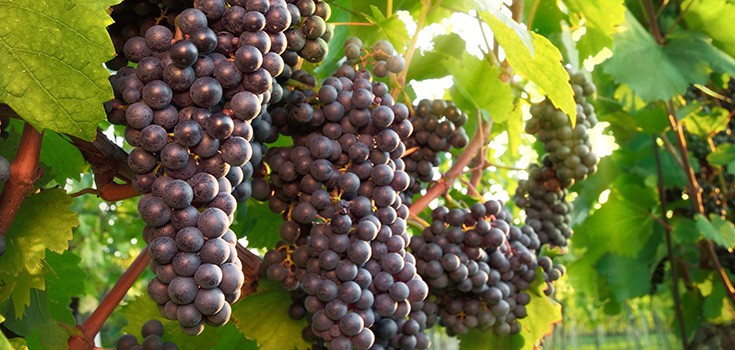Keep Colon Cancer at Bay with Phytonutrients (Berries, Grapes, Apples)

A collection of dietary studies, including almost 400,000 people, reviewed by China’s National Center of Colorectal Surgery has concluded that a diet rich in phytonutrients may reduce the occurrence of colorectal cancer. Of specific consideration is a diet including flavonoids and flavanols.
Eight different studies were considered, including studies with large populations and smaller, randomized studies. Evidence from all of these varied studies was closely reviewed. To help with quantification of data and conservatism, the Cochrane library and Cochrane protocol were used.
Upon close examination of the research, it was determined that consumption of foods rich in flavanols greatly reduced the risk of colon cancer. In addition, the greater quantity of flavanol-rich food that was consumed meant a greater risk reduction. A particular flavanol, epicatechin was found to have a considerable impact on the risk of one developing colorectal cancer.
What is A Flavanol?
All plant foods contain thousands of natural chemicals called phytonutrients or phytochemicals. The word Phtyo is a Greek word that means plants. The natural chemicals found within plants protect the plant from external threats including bugs, germs and fungi. While they may not be ‘essential’ to sustaining human life, they do help prevent disease and keep the body in working order. The most well known phytonutrients are carotenoids, flavonoids, indoles, phytoestrogens, lignans and isoflavones. Flavanols are a subclass of polyphenols. Of over the 25,000 phytonutrients found in plant foods, flavonoids, including flavanols, are found in a large number of plants foods including onions, berries, grapes and apples. Catechins, which include epicatechin, gallocatechin and epigallocatechin from the flavonoid family, are found in herbal tea and cocoa.
Other Phytonutrients
The reviewed data also indicated that consuming foods with procyandins and phytoestrogens reduced the incidence of colorectal cancer, but to a lesser degree than the polyphenols. Two other phytonutrients, genistein, and formononetin reduced the risk of colorectal cancer, as well. These compounds are both isoflavonoids and phytoestrogens because they can bind to estrogen receptors in the body. This is significant, especially for women because, as the body ages, the decrease in estrogen can increase inflammation. Consuming foods rich in phytoestrogens will help offset this inflammation. Genistein and formononetin are found in soy, red clover beans and some whole grains.
U.S. National Cancer Institute Study
One of the studies that was considered was as review from the United States Cancer Institute. The study group was comprised of 1,905 people with an average age of 61. The consumption of 29 different flavonoids was compared to the occurrence of adenomatous polyps (common symptom of colorectal cancer). Colonoscopies were used to detect the polyp incidence.
The study indicated that a diet high in flavonoids and switching to a high-fiber diet both reduced the occurrence of polyp formation and colorectal cancer. Cancer prevention was most notable amongst those participants that consumed foods with the highest flavonol content indicating that attention should be given to the type of fruits and vegetables consumed, not just an overall increase in consumption of the food type.
Additional Sources:
